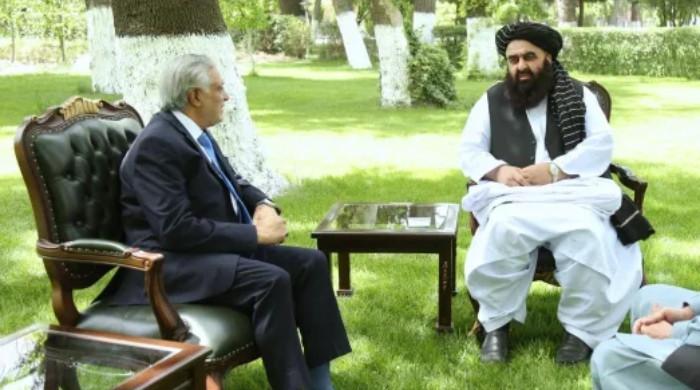Uzbekistan-Afghanistan-Pakistan Railway Project Stressed for Regional Connectivity
Deputy Prime Minister and Foreign Minister Senator Ishaq Dar and Acting Foreign Minister of Afghanistan Amir Khan Muttaqi have underscored the significance of the Uzbekistan-Afghanistan-Pakistan (UAP) Railway Line Project in enhancing regional connectivity.
During a recent phone call between Foreign Minister Dar and his Afghan counterpart, both leaders concurred on the need for close collaboration to expedite the finalization of the framework agreement, according to a statement from the Foreign Office.
Previously, Foreign Minister Dar engaged in a telephonic discussion with Uzbekistan’s Foreign Minister Saidov Bakhtiyor Odilovich, where they explored avenues for promptly concluding the framework agreement for the UAP railway, encompassing specifics of the signing ceremony in consultation with Afghan leadership.
The UAP Railway Line Project is a collaborative endeavor aimed at boosting regional connectivity by linking Central Asia to the ports of Gwadar and Karachi via Afghanistan. The project envisions a 573-kilometer railway connecting Tashkent to Peshawar through Kabul, with an estimated investment of $4.8 billion.
Discussing the elevation of diplomatic relations between the two nations, Muttaqi welcomed Pakistan’s decision to upgrade its diplomatic presence to the ambassador level, noting that Afghanistan intends to reciprocate this move.
He hailed this as a notably positive step in strengthening bilateral ties.
Both leaders also assessed the progress of decisions made during the deputy prime minister’s visit to Kabul on April 19 and pledged to continue their joint efforts to foster mutual trust between the two countries.
While Pakistan and Afghanistan maintain embassies in each other’s capitals, they have been led by charge d’affaires, not ambassadors.
Islamabad declared its intention to elevate the chargé d’affaires in Afghanistan to the rank of ambassador, reflecting improved relations with its neighbor.
Subsequently, Kabul also announced its decision to elevate its diplomatic representation in Islamabad to full ambassadorial status.
China previously accepted an ambassador from the Taliban-led administration in Kabul, despite not formally recognizing the government. Other countries, including the United Arab Emirates (UAE), have since followed suit.



Comments (0)
No comments yet. Be the first to comment!
Leave a Comment